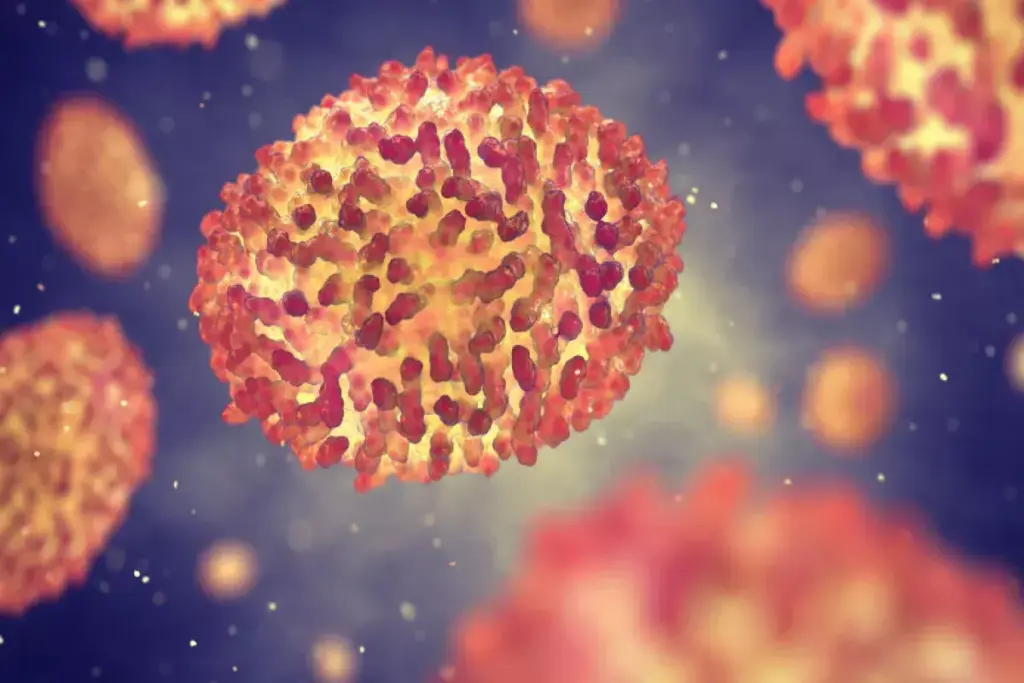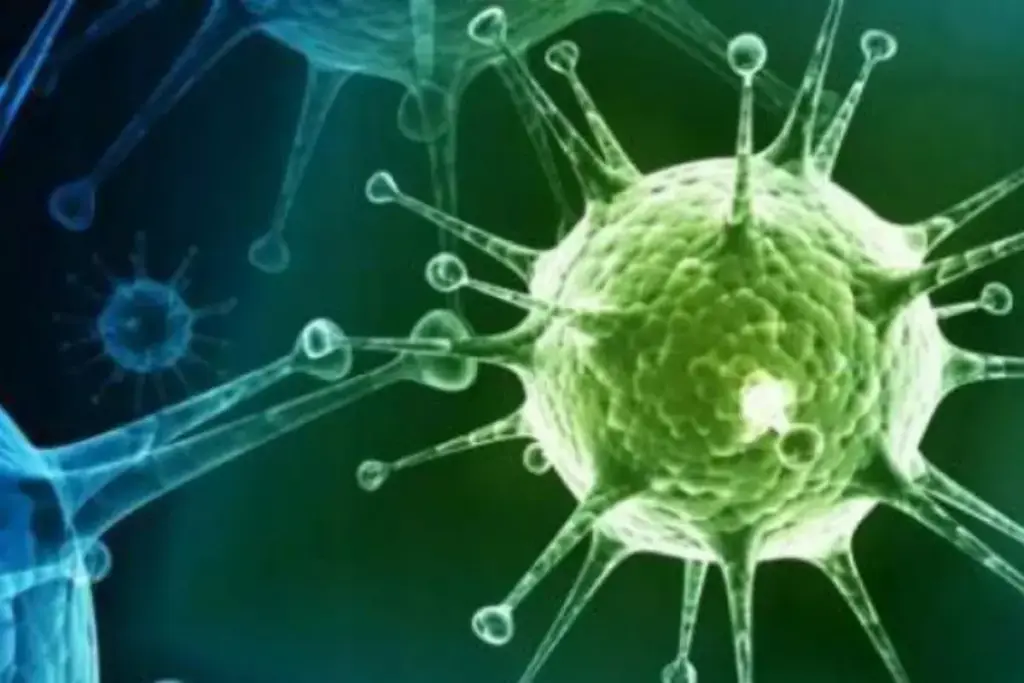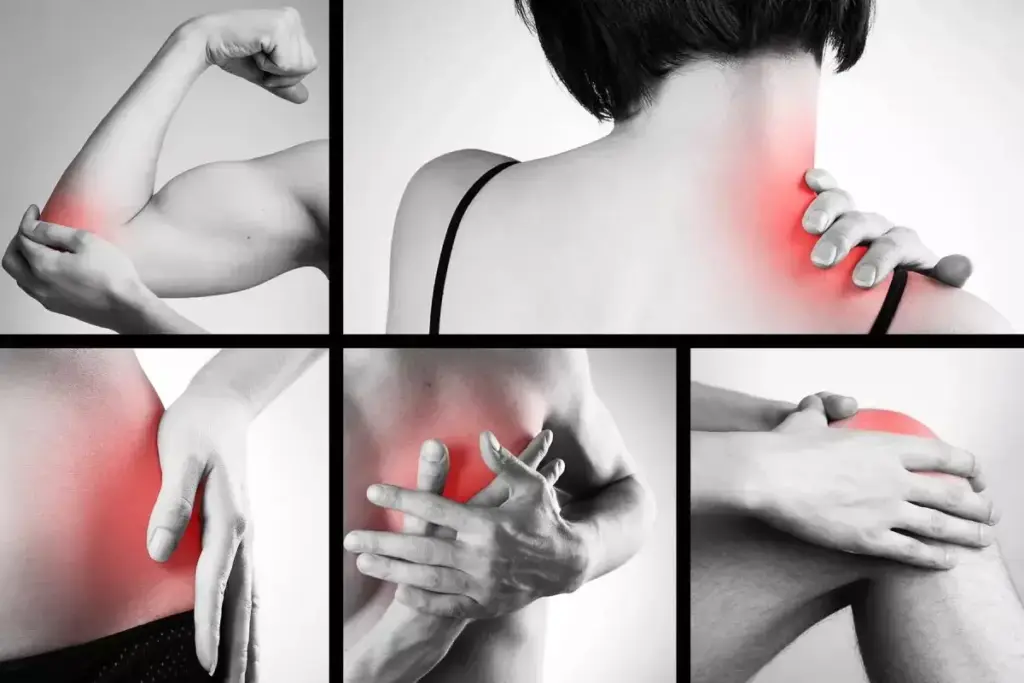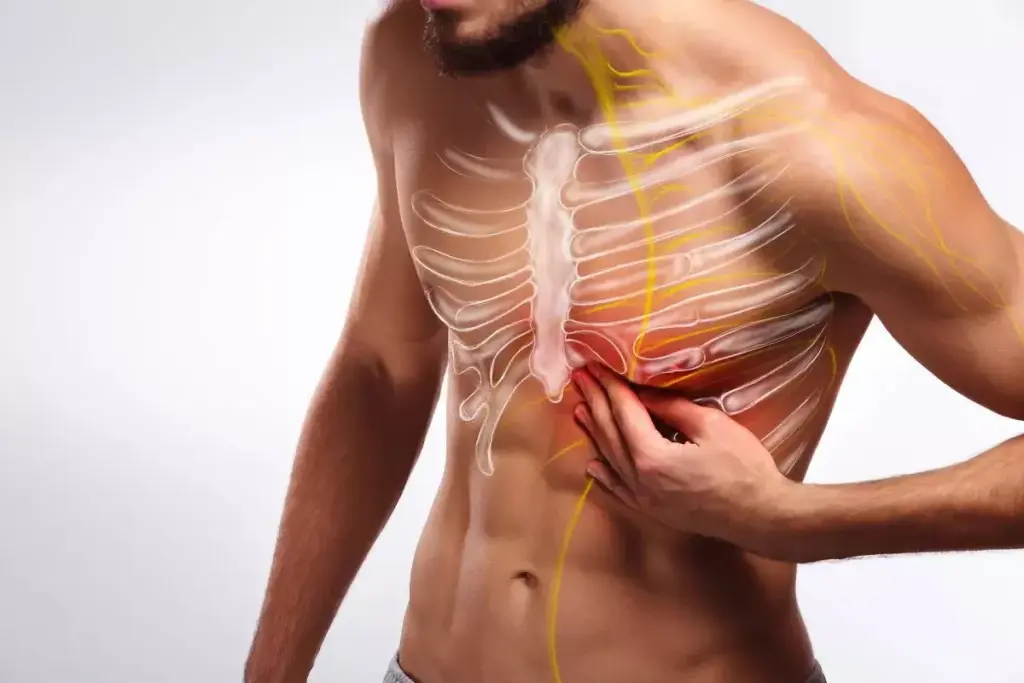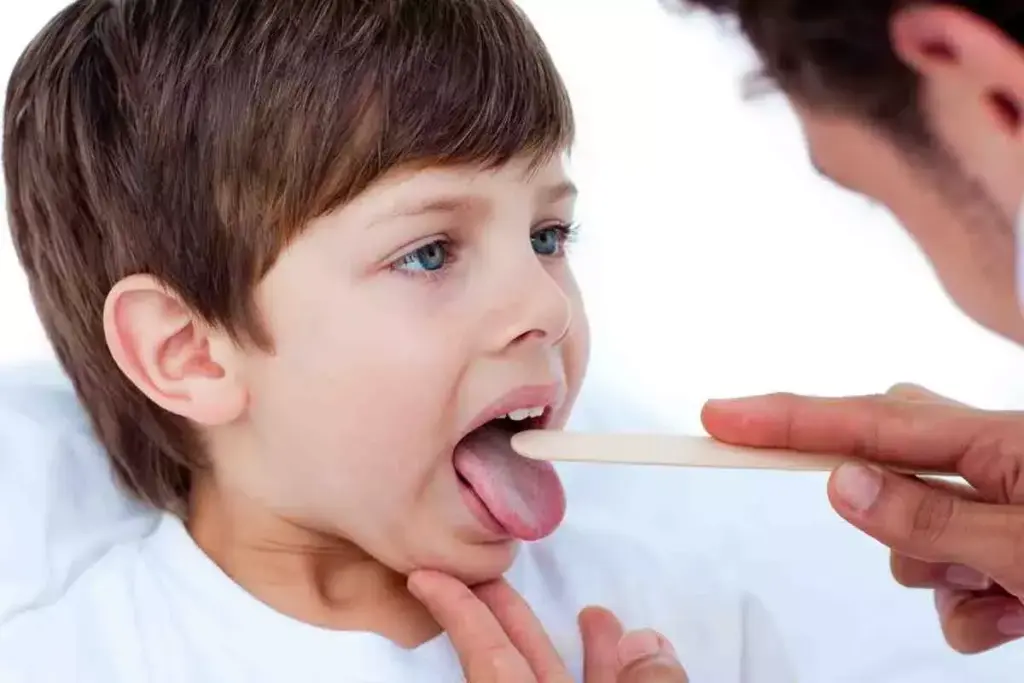Did you know that iron deficiency is a common cause of heavy periods in women? Heavy menstrual bleeding can lead to a significant loss of iron, resulting in anemia. This condition not only affects a woman’s quality of life but also has broader health implications.
Understanding the relationship between anemia and menstruation is crucial for women’s health. Iron plays a vital role in producing hemoglobin, a protein in red blood cells that carries oxygen to different parts of the body. When iron levels are low, the body’s ability to transport oxygen is compromised, leading to fatigue, weakness, and other symptoms associated with anemia.
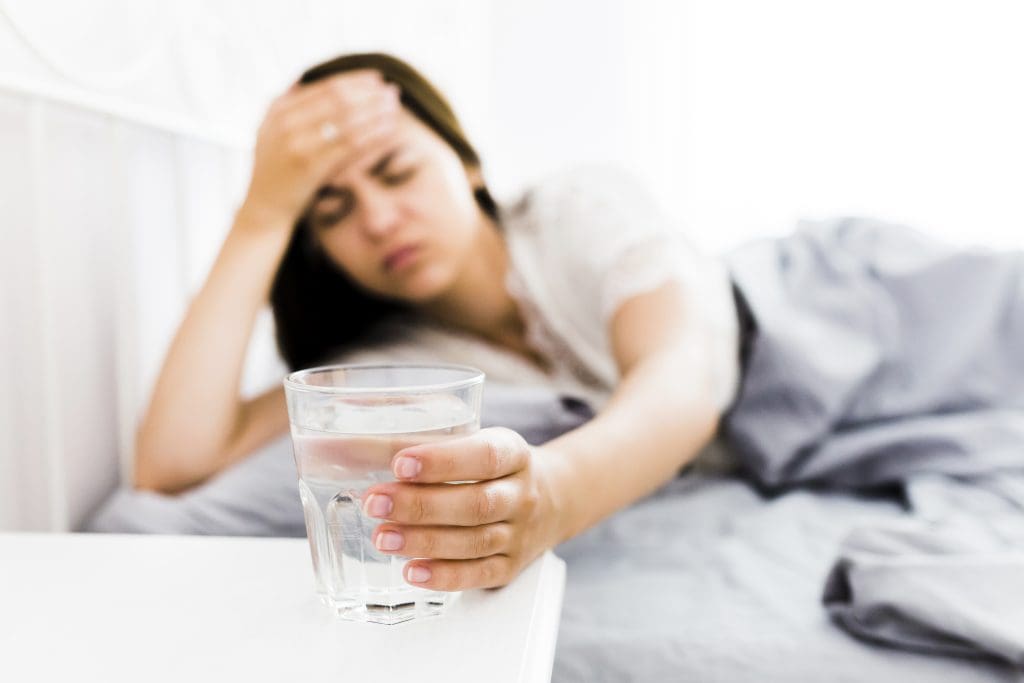
Key Takeaways
- Iron deficiency is a leading cause of heavy periods in women.
- Heavy menstrual bleeding can result in significant iron loss, leading to anemia.
- Understanding anemia and menstruation is crucial for maintaining women’s health.
- Iron is essential for producing hemoglobin, which carries oxygen in the blood.
- Low iron levels can cause fatigue, weakness, and other health issues.
The Connection Between Nutritional Deficiencies and Menstrual Health
Nutritional deficiencies, especially iron deficiency, are key to menstrual health. Menstruation shows how well a woman’s body is working. It’s especially important for women who can have kids.
The menstrual cycle needs a balance of hormones and nutrients. Iron, vitamin B12, and folate help keep red blood cells healthy. Without enough, you might feel tired and have other health issues.
How Nutrients Affect Your Menstrual Cycle
Nutrients are crucial for a regular menstrual cycle. Iron helps make healthy red blood cells. Without enough, you might bleed more or for longer. Eating well can help with some menstrual problems.
Key Deficiencies That Impact Menstruation
Some nutritional gaps can affect your period, including:
- Iron deficiency, which can cause anemia and heavier bleeding
- Vitamin B12 and folate deficiencies, affecting red blood cell production
- Magnesium and calcium imbalances, influencing hormonal balance and menstrual cramps
As
“A healthy diet is fundamental to managing menstrual health and preventing deficiencies that can exacerbate menstrual symptoms.”
, a top health expert notes. Getting enough of these nutrients is vital for good menstrual health.
Understanding Heavy Menstrual Bleeding (Menorrhagia)
Menorrhagia is a condition where women have very heavy or long menstrual bleeding. It can really affect a woman’s life, causing pain and making it hard to do daily things. It can even lead to serious health problems like anemia.
What Qualifies as Heavy Menstrual Bleeding?
Heavy menstrual bleeding means losing more than 80 ml of blood each month or bleeding for over 7 days. Women with menorrhagia might need to change their pads or tampons every hour or two. They might also use two products at once to handle the bleeding.
Common Symptoms of Menorrhagia
Symptoms of menorrhagia can differ but often include:
- Prolonged menstrual bleeding lasting more than a week
- Heavy bleeding that requires frequent changing of sanitary products
- Passage of large blood clots during menstruation
- Significant discomfort or pain during menstruation
- Fatigue or shortness of breath due to anemia
When to Seek Medical Attention
If you have symptoms of menorrhagia that mess up your daily life, see a doctor. Also, if you notice signs of anemia like dizziness, pale skin, or shortness of breath, get help. A healthcare provider can find out why you’re bleeding so much and suggest the right treatment.
Menorrhagia can be caused by many things, like hormonal imbalances, uterine fibroids, or bleeding disorders. Knowing the cause helps in managing the condition better.
Iron Deficiency: The Primary Culprit Behind Heavy Periods
It’s important to know how iron affects menstrual flow to manage heavy periods. Iron is key for our health, and not having enough can cause heavy bleeding during menstruation.
How Iron Functions in the Body
Iron helps make hemoglobin, a protein in red blood cells that carries oxygen. Without enough iron, our bodies don’t get enough oxygen. This can make us feel tired and weak. Iron also helps our immune system and is involved in many body processes.
The Relationship Between Iron Levels and Menstrual Flow
Menstrual bleeding can cause a lot of iron loss, especially for women with heavy periods. Low iron levels make it hard for the body to make hemoglobin. This can make menstrual bleeding worse. Women with heavy periods are more likely to have low iron levels.
| Iron Level | Menstrual Flow | Health Impact |
| Normal | Regular | Minimal health impact |
| Low | Heavy | Increased risk of anemia |
| Deficient | Very Heavy | Significant health risks, including anemia |
The Cyclical Nature of Iron Deficiency and Heavy Bleeding
Iron deficiency and heavy menstrual bleeding are connected in a cycle. Heavy bleeding can cause iron deficiency, which makes menstrual bleeding worse. To break this cycle, we need to treat both the heavy bleeding and the iron deficiency.
Understanding iron’s role in our bodies and its link to menstrual flow helps manage heavy periods. This includes changing our diet, taking iron supplements, and getting medical help for menstrual bleeding.
Anemia and Menstruation: A Two-Way Relationship
Understanding the link between anemia and menstruation is key to managing menstrual health. This complex relationship affects women’s overall well-being.
How Heavy Periods Contribute to Anemia
Heavy menstrual periods can cause a lot of blood loss. This can lead to anemia if it goes on for too long. Iron deficiency anemia is common, happening when the body doesn’t have enough iron for hemoglobin.
Iron is vital for making hemoglobin, which carries oxygen. Without enough iron, the body can’t make enough hemoglobin. This can cause fatigue, weakness, and shortness of breath.
How Anemia Can Worsen Menstrual Bleeding
Anemia can also make menstrual bleeding worse. When the body is anemic, it can’t carry enough oxygen to the uterus. This might make menstrual bleeding heavier or last longer.
This creates a cycle where heavy periods cause anemia, and anemia makes bleeding worse. Breaking this cycle is essential for managing both conditions.
Breaking the Cycle of Anemia and Heavy Periods
To tackle the relationship between anemia and heavy periods, a detailed plan is needed. This includes eating more iron, possibly taking iron supplements, and treatments to lessen menstrual bleeding.
By tackling both anemia and heavy periods at the same time, women can stop the cycle of worsening symptoms. This improves their health and quality of life.
Other Nutritional Deficiencies That Affect Menstrual Flow
Iron deficiency is known to cause heavy periods, but other nutritional issues also affect menstrual health. A variety of vitamins and minerals play a role in menstrual flow. It’s important to consider these factors for overall menstrual health.
Vitamin B12 and Folate Deficiencies
Vitamin B12 and folate are key for making red blood cells. Without enough, you might get anemia, making bleeding worse. Vitamin B12 deficiency can cause fatigue and weakness. Folate deficiency can lead to anemia and fatigue too.
Getting enough of these vitamins through food or supplements is crucial. It helps keep menstrual cycles healthy.
Vitamin D Deficiency
Vitamin D helps regulate menstrual cycles and keeps bones strong. Studies link vitamin D deficiency to irregular periods and heavy bleeding. Getting enough vitamin D through sun, diet, or supplements is important.
Magnesium and Calcium Imbalances
Magnesium and calcium are vital for muscle function and health. Magnesium deficiency can cause cramps and mood swings, common in menstrual cycles. Calcium is key for bone health, affecting menstrual regularity.
Keeping a balance of these minerals is essential for menstrual health.
| Nutritional Deficiency | Impact on Menstrual Health |
| Vitamin B12 | Anemia, fatigue, neurological changes |
| Folate | Anemia, fatigue |
| Vitamin D | Menstrual irregularities, bone health |
| Magnesium | Cramps, bloating, mood swings |
| Calcium | Menstrual regularity, bone health |
In conclusion, addressing nutritional deficiencies beyond iron is key for menstrual health. Adequate intake of vitamins B12, folate, vitamin D, magnesium, and calcium is crucial. A balanced diet or supplements can help manage heavy bleeding and improve menstrual health.
Hormonal Imbalances and Their Impact on Menstrual Bleeding
Hormonal imbalances can greatly affect menstrual bleeding. They can change how often, how long, and how heavy periods are.
Estrogen and Progesterone Imbalances
Estrogen and progesterone are key hormones for the menstrual cycle. An imbalance can cause irregular bleeding. Estrogen dominance can make periods heavier or longer. On the other hand, progesterone deficiency can cause the uterine lining to shed irregularly.
It’s important to keep estrogen and progesterone in balance for normal periods. Stress, diet, and some medical conditions can upset this balance, leading to irregular periods.
Thyroid Dysfunction and Heavy Periods
The thyroid gland is crucial for metabolism and hormone balance. Thyroid dysfunction, like hypothyroidism and hyperthyroidism, can affect menstrual bleeding. Hypothyroidism often leads to heavier or longer periods.
Thyroid hormone replacement can help with thyroid-related menstrual issues. It’s important to regularly check thyroid function for women with heavy or irregular periods.
PCOS and Irregular Bleeding Patterns
Polycystic Ovary Syndrome (PCOS) is a hormonal disorder that affects ovulation and menstrual regularity. Women with PCOS often have irregular or absent menstrual periods. When periods do come, they can be heavy or prolonged.
Managing PCOS involves hormonal treatments to regulate cycles and improve fertility. Diet and exercise are also key in managing PCOS symptoms.
Understanding hormonal imbalances’ impact on menstrual bleeding is key to managing it. By addressing hormonal issues, women can control their menstrual health and reduce symptoms of heavy or irregular periods.
Recognizing Symptoms of Anemia During Your Menstrual Cycle
It’s important to know the signs of anemia during your period. Anemia, often due to iron deficiency, can really affect your life. It’s especially true during your menstrual cycle.
Physical Symptoms of Anemia
Anemia can cause fatigue, weakness, and shortness of breath. Women might feel dizzy or lightheaded when they stand up fast. They may also have pale skin, cold hands and feet, and headaches.
| Symptom | Description |
| Fatigue | Persistent feeling of tiredness or lack of energy |
| Weakness | Muscle weakness or lack of strength |
| Shortness of Breath | Difficulty breathing or feeling winded even at rest |
Mental and Emotional Signs of Iron Deficiency
Iron deficiency can also affect your mind and feelings. You might feel mood swings, irritability, and depression. Some women struggle with brain fog or trouble focusing, making everyday tasks hard.
How Symptoms May Change Throughout Your Cycle
Anemia symptoms can change with your menstrual cycle. Symptoms might get worse during heavy bleeding days. But they could get a bit better after your period. Knowing these patterns can help you manage your condition better.
By understanding these symptoms and their changes, women can get the medical help they need. This can help lessen the effects of anemia on their daily lives.
Diagnostic Tests for Iron Deficiency and Heavy Menstrual Bleeding
Iron deficiency and heavy menstrual bleeding can be diagnosed through a combination of medical history, physical examination, and specific diagnostic tests. Accurate diagnosis is crucial for effective treatment.
Blood Tests to Assess Iron Status
Blood tests are a primary diagnostic tool for assessing iron deficiency. These tests measure various markers of iron status, including:
- Serum Ferritin: Reflects the body’s iron stores.
- Serum Iron: Measures the amount of circulating iron.
- Total Iron Binding Capacity (TIBC): Indicates the capacity of the blood to bind iron.
- Transferrin Saturation: Calculates the percentage of transferrin that is saturated with iron.
These tests help healthcare providers understand the severity of iron deficiency and monitor the effectiveness of treatment.
Evaluating Menstrual Blood Loss
Assessing menstrual blood loss is essential for diagnosing heavy menstrual bleeding. Healthcare providers may use:
- Menstrual Diary: Patients record the duration and heaviness of their menstrual flow.
- Visual Assessment: Healthcare providers may visually assess the amount of blood lost during menstruation.
These methods help quantify menstrual blood loss and determine if it is within normal limits.
Additional Tests to Rule Out Other Causes
In some cases, additional tests may be necessary to rule out other causes of heavy menstrual bleeding, such as:
- Ultrasound: To check for uterine fibroids or other structural abnormalities.
- Endometrial Biopsy: To examine the uterine lining for abnormalities.
- Hormone Tests: To assess hormonal imbalances that may contribute to heavy bleeding.
These tests help healthcare providers identify underlying conditions that may be contributing to heavy menstrual bleeding.
Medical Treatments for Anemia-Related Heavy Periods
There are several medical treatments for anemia-related heavy periods. These treatments aim to reduce menstrual bleeding and replenish iron stores. They also address any hormonal imbalances.
Iron Supplementation Options
Iron supplements are key in managing anemia-related heavy periods. Oral iron supplements are often prescribed to boost iron levels. Iron supplements come in various forms, including ferrous sulfate, ferrous gluconate, and ferrous fumarate, with ferrous sulfate being the most common due to its high iron content and affordability.
For those who can’t take oral iron or have severe iron deficiency, intravenous iron therapy is an option. This method quickly replenishes iron stores and is especially helpful for women with heavy menstrual bleeding.
Hormonal Treatments to Reduce Bleeding
Hormonal treatments are used to manage heavy menstrual bleeding. Combined oral contraceptives (COCs) and progestin-only contraceptives can regulate menstrual cycles and reduce bleeding. COCs, in particular, can cut menstrual blood loss by up to 50%.
Other hormonal options include progesterone-releasing intrauterine devices (IUDs). These devices significantly reduce menstrual bleeding over time. They provide localized hormone delivery, reducing systemic side effects.
Surgical Interventions for Severe Cases
In severe cases, surgical interventions may be needed. Endometrial ablation destroys the uterine lining to reduce or stop menstrual bleeding. It’s usually considered for women who have finished having children.
Hysterectomy, or the removal of the uterus, is a definitive treatment for heavy menstrual bleeding. However, it’s generally a last resort due to its permanence and potential risks.
Women with anemia-related heavy periods should talk to their healthcare provider about treatment options. A healthcare professional can help choose the best treatment plan. They can develop a personalized approach to manage symptoms and improve quality of life.
Dietary Approaches to Combat Iron Deficiency
Diet is key in fighting iron deficiency, especially for women with heavy periods. Eating foods rich in iron and improving how the body absorbs iron can help manage iron levels.
Iron-Rich Foods to Include in Your Diet
It’s important to eat foods high in iron to fight iron deficiency. Heme iron, found in animal products, is better absorbed than non-heme iron from plants. Here are some iron-rich foods:
- Red meat
- Poultry
- Fish
- Legumes (lentils, chickpeas, black beans)
- Leafy greens (spinach, kale, collard greens)
- Nuts and seeds (pumpkin seeds, sesame seeds, sunflower seeds)
- Fortified cereals
Foods That Enhance Iron Absorption
Some foods help the body use iron better. Vitamin C boosts non-heme iron absorption. Foods rich in vitamin C include:
- Citrus fruits (oranges, lemons, grapefruits)
- Strawberries
- Kiwi
- Bell peppers
- Tomatoes
Cooking in cast-iron cookware also increases iron intake, especially with acidic foods like tomatoes.
Foods to Avoid During Your Period
Some foods can block iron absorption or make bleeding worse. It’s best to limit or avoid:
| Food/Drink | Effect on Iron Absorption or Menstrual Bleeding |
| Caffeine | Can inhibit iron absorption |
| Calcium-rich foods | Can reduce non-heme iron absorption |
| Foods high in phytates (whole grains, legumes) | Can reduce non-heme iron absorption |
Knowing which foods to eat and avoid can help women manage iron levels and reduce symptoms of iron deficiency during their period.
Lifestyle Changes to Manage Heavy Periods and Anemia
Making certain lifestyle changes can help with heavy menstrual bleeding and anemia. These changes can be added to your daily routine. They can improve your condition and overall health.
Exercise Considerations for Those with Anemia
Exercise is good for anemia, but start slowly. Try yoga or short walks first. Avoid too much exercise to prevent making symptoms worse. Gradually increase your activity with a doctor’s help to boost iron levels.
Stress Management Techniques
Stress can make heavy periods and anemia worse. Try meditation, deep breathing, or mindfulness to help. Doing things you enjoy can also lower stress. Regular use of these methods can manage symptoms better.
Sleep Optimization Strategies
Good sleep is key, especially for those with heavy periods and anemia. Stick to a sleep schedule and make your bedroom cozy. Stay away from caffeine and screens before bed to sleep better. Better sleep can help with anemia and heavy periods symptoms.
Supplements and Natural Remedies for Heavy Periods
Women with heavy menstrual bleeding might find relief in supplements and natural remedies. Menstrual health is complex, and many look for alternatives to traditional treatments.
Evidence-Based Supplements for Menstrual Health
Some supplements may help with heavy menstrual bleeding. Iron supplements are key for iron deficiency anemia, a common issue. Vitamin C boosts iron absorption, making it a great helper. Magnesium and calcium might ease menstrual cramps and heavy bleeding too.
- Iron: Essential for preventing and treating iron deficiency anemia.
- Vitamin C: Enhances iron absorption.
- Magnesium: May help with menstrual cramps.
- Calcium: Supports overall menstrual health.
Herbal Remedies That May Help
Herbal remedies have been used for centuries, including for menstrual issues. Some herbs that might help with heavy periods are:
- Ginger: Known for its anti-inflammatory properties.
- Turmeric: Contains curcumin, which may help reduce menstrual bleeding.
- Raspberry leaf: Traditionally used to support uterine health.
Safety Considerations When Using Supplements
Supplements and herbal remedies can be helpful but must be used safely. Always talk to a healthcare provider before starting any new supplements, especially if you’re on medications or have health issues. Make sure the supplements come from trusted sources to avoid contamination or bad interactions.
Women might find extra support for heavy menstrual bleeding by adding these supplements and natural remedies to their routine. But, it’s important to use them carefully and with professional advice.
Preventing Iron Deficiency During Menstruation
Women who menstruate can take steps to avoid iron deficiency. They can change their diet and keep an eye on their iron levels. A good plan can lower the risk of iron deficiency and its problems.
Proactive Dietary Strategies
Eating foods rich in iron is key to avoiding iron deficiency. Foods high in iron include red meat, poultry, fish, beans, lentils, and fortified cereals. Also, eating foods high in vitamin C, like citrus fruits and bell peppers, helps iron absorption.
- Include iron-rich foods in your meals
- Consume vitamin C-rich foods to enhance iron absorption
- Avoid tea and coffee with meals as they can inhibit iron absorption
Monitoring Your Iron Status
Regular blood tests are important to check your iron levels. If you have heavy menstrual bleeding, talk to your healthcare provider. They can help you check your iron levels and suggest diet changes or supplements.
When to Consider Preventive Supplementation
If diet changes don’t keep your iron levels up, you might need supplements. Talk to your healthcare provider about what’s best for you.
Conclusion: Breaking the Cycle of Deficiency and Heavy Bleeding
To break the cycle of deficiency and heavy bleeding, we need a complete plan. This plan must tackle the mix of nutritional gaps, hormonal imbalances, and menstrual health issues.
In this article, we’ve looked at how iron deficiency and heavy menstrual bleeding are connected. We’ve also seen how other nutritional gaps and hormonal imbalances can make menstrual symptoms worse.
Women can start managing their symptoms by making dietary changes and lifestyle tweaks. They can also consider medical treatments.
It’s key to tackle iron deficiency and heavy bleeding to boost women’s health and life quality. By focusing on menstrual health in a holistic way, women can overcome these issues. This leads to a healthier, more balanced life.
FAQ
Can anemia affect your menstrual period?
Yes, anemia can impact your menstrual cycle. Heavy periods can cause anemia. This creates a cycle that’s hard to break.
How does iron deficiency cause heavy periods?
Iron deficiency can cause heavy periods. Iron is key for making hemoglobin, which carries oxygen. Without enough iron, menstrual cycles can become irregular and heavy.
Can low iron stop your period?
Low iron might not stop your period directly. But severe iron deficiency can lead to irregular cycles or even no periods at all.
Does low iron cause heavy periods?
The link between low iron and heavy periods is complex. Heavy periods can lower iron levels. Also, iron deficiency might make periods heavier.
Can heavy periods cause anemia?
Yes, heavy periods can lead to anemia. Blood loss during menstruation can deplete iron stores. This can cause iron deficiency anemia if not managed.
What are the symptoms of anemia during menstruation?
Symptoms include fatigue, weakness, and pale skin. You might also feel short of breath or dizzy. These symptoms worsen with menstrual blood loss.
How is iron deficiency anemia diagnosed during menstruation?
Diagnosis involves blood tests for iron levels. Tests check serum ferritin and hemoglobin. Your menstrual blood loss and overall health are also evaluated.
Can dietary changes help manage heavy periods and anemia?
Yes, dietary changes can help. Eating iron-rich foods and vitamin C can improve iron absorption. Avoid foods that block iron absorption.
Are there supplements that can help alleviate heavy periods and anemia?
Yes, iron supplements are often recommended. Vitamin B12 and folate may also help, depending on the anemia cause.
How can lifestyle changes help manage heavy periods and anemia?
Lifestyle changes can help. Regular exercise, stress management, and good sleep can ease symptoms of heavy periods and anemia.
Can hormonal treatments help with anemia-related heavy periods?
Yes, hormonal treatments can help. Certain contraceptives can reduce menstrual bleeding. This may help with iron deficiency anemia caused by heavy periods.
When should one consider preventive supplementation for iron deficiency during menstruation?
If you have a history of heavy periods or anemia, consider preventive supplements. Always talk to a healthcare provider to find the best solution.




